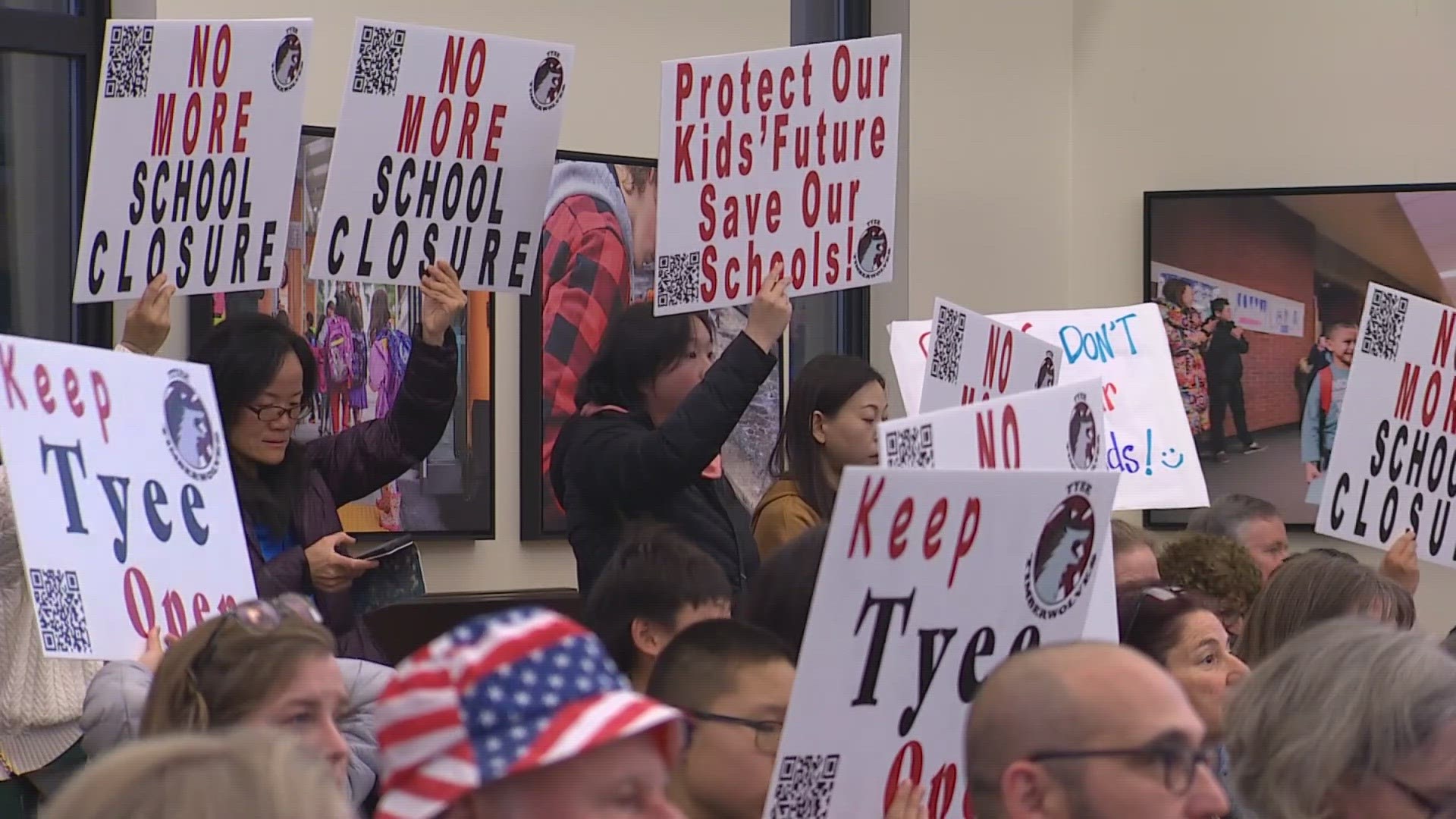BELLEVUE, Wash. — On Thursday, the Bellevue School District held a board meeting. Dozens of people showed up to voice opposition to a middle school consolidation. Like the elementary school consolidation that was implemented this school year, Superintendent Kelly Aramaki says this option is being looked at because of budget concerns and declining enrollment.
“We don't get enough funding from the state in order to fund what we need in a public school system,” he said. "We have about 1,700-1,800 students in our 12th-grade class that are graduating. We only have about 1,100 kids coming into kindergarten."
Aramaki said the declining enrollment is being caused by a variety of reasons; families leaving the area and families not having kids are a few of those reasons. No matter the reasons, he said the end result is the same: the district, much like others in Western Washington, must look and see where they can save money. The district plans to keep families informed every step of the way.
“We're presenting the information, data and asking the community what matters to them,” the superintendent said. Community forums have been held at each of the middle schools. More are expected to be planned in the coming months.
Superintendent Aramaki said this is going to be about a five-month process. In January, if middle school consolidation is on the table, he will make a draft recommendation. Community members will then be allowed to voice their concerns and opinions. In March, a final recommendation would be presented for the board to vote on. That timeline can be found on the district’s website.
As was noted when elementary schools were consolidated, closing schools with lower enrollment allows the school to keep offering students a thorough educational experience. If schools with lower enrollment are allowed to stay open, the district would have to look into cutting programs and other services. They’ve made it clear that is a non-starter.
Family Reaction
At the meeting, speakers praised the Bellevue School District for the diverse, welcoming, educational experience they’ve created at their middle schools. One student, a 6th grader at Highland Middle School, gave her comments to the board in English and Spanish, showcasing how much she’s learned by being in that school.
Parents filled the room, holding signs asking the district to keep their respective middle schools open. The crowd, though passionate, did not interrupt the board meeting, but made sure their presence could be felt. One woman who spoke asked the board to do what’s best for the students “not make decisions based on the schools that scream the loudest or have the most signs.”
Sean Patch, a father and middle school teacher, thanked the board for making the private-to-public transition for his daughter a positive experience. The diversity, he said, is what his daughter, Zoe, talks about the most. It makes her feel welcome to be in an inclusive learning environment. She’s the one who spurred him into action once he found out about the possible consolidation.
"She says, ‘Dad, what are we going to do?’ We're speaking up,” Patch said. More groups of parents are expected to continue making their case to the board.

